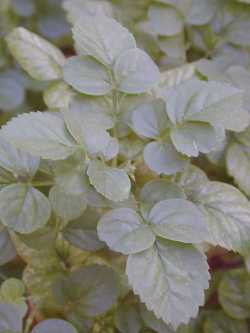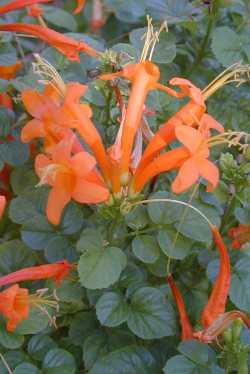Cape Honeysuckle
Scientific Name: Tecomaria capensis (Thunb.) Spach
Synonym: Bignonia capensis, Tecoma capensis
Family: Bignoniaceae
Sunset®: 11-13, 16, 18-28
USDA: 9b-10
Frost Tolerance: Hardy to 26° F, can sustain minor damage if unprotected, however recovery is generally rapid
Heat Tolerance: Excellent
Sun Exposure: Full sun to light shade
Origin: South Africa, Mozambique
Growth Habits: Evergreen shrub, can be pruned to a 6 to 8 feet upright shrub (1.8-2.4 m) or more, occasionally rampant if left unpruned; shiny green, odd-pinnate leaves, up to 6 inches long (15 cm), 2 inches wide (5 cm), with 7 or 9 leaflets, up to 1 inch long (2.5 cm)
Watering Needs: Little water once established, give a good soaking every month in summer
Propagation: Seeds, softwood or semi-hardwood cuttings any time.

Blooming Habits:
The Cape Honeysuckle has spectacular bright orange flowers. It blooms all year, however the flowers are more abundant in autumn or spring. They attract hummingbirds.
Culture:
Reacts favorably to pruning in early summer. Can be cut to ground every few years to keep it from becoming woody and leggy. It is fairly salt resistant and can be used for seaside plantings.
Desert-Tropicals is dedicated to provide gardening advice, gardening ideas, and information about flower of all kind for landscape and collections.We try to check carefully the identification of the plants on the illustrations as well as the other information from the page, but occasionally errors do occur. if you notice anything that needs to be changed please contact us.Thanks.
© 1998-2020 Philippe Faucon, All Rights Reserved.
